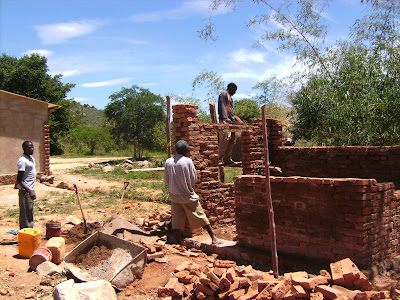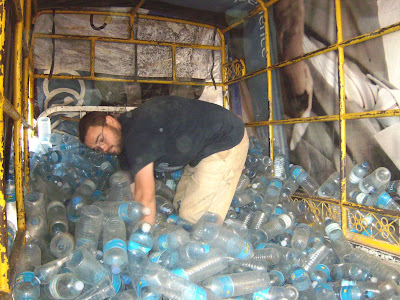Kibati Primary School
Our plans for the new primary school in the Kibati part of Lundamatwe Village are right on schedule. This project has been almost completely done by our on the ground worker Abbas Sanga. He and I (Elliot) planned and budgeted for the classroom, office, and bathroom and he has facilitated the project in my absence. To refresh your memory we are partnering with the local community to start a new primary school in Lundamatwe Village, approximately 4.5 miles from the main Lundamatwe Primary School. The new school is being built to deal with the growing influx of students and overcrowding at Lundamatwe Primary School and to allieviate the problem of some students haveing to walk almost two hours (8 miles) each way to school.
Little Angels Primary School
Ian paid a visit to Little Angels Orphanage and Primary School in Mityana, Uganda three weeks ago. Currently at the school there are 400 kids enrolled, 200 are orphans and 68 are living at the school. Sarah, the headmaster, ran out of space to house all the kids so she is renting a nearby room for $75/month for 40 girls to sleep. All 200 orphans all get porridge at breakfast and lunch and the 68 orphans who live there receive breakfast, lunch and dinner. During Ian's visit he helped to facilitate and donate money for several projects, including the foundation of a new classroom building, cleaning of the overfull bathroom hole, building a hand-washing station, and purchasing two small goats to be sold at a later date.
Secondary School Sponsorship
Project Kesho has continued to sponsor boys in Lundamatwe Village to attend Secondary School. We started our sponsorship program for boys because there is already a group called CAMFED (Campaign for Female Education) from the United Kingdom which exclusively supports girls. We started supporting boys at the beginning of 2007 and currently support three different grade groups of about 75 students. This year we also started supporting 16 students from Little Angels Primary School to go to secordary School.

Relay Races at Little Angels

More Races
A crowded classroom at Little Angels

Little Angels is so overcrowded they have to hold some classes outside

A view outside the lower classrooms at Little Angels

Children waiting for lunch at Little Angels, the Kitchen is right around the corner

Another crowded classroom at Little Angels

Some of the new Secondary Students at Little Angels sponsored by Project Kesho

The foundation of the new classroom building at Little Angels

Digging the new bathroom hole at the Kibati Primary School in Tanzania

Villagers transporting brick for the Kibati School

The empty land for the new Primary School in Kibati

Working on the foundation for the Kibati School

The finished classroom and office that is the start of Kibati Primary School

Some of the newest group of Secondary School students sponsored by Project Kesho

The finished kitchen at Ulonge Primary School

The Doctor (right) and the nurse at the Village Dispensary with the delivery kit donated by Project Kesho





































